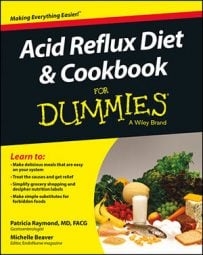Have you ever noticed that your acid reflux seems to kick in at the most inconvenient times? It could be just before a big meeting or when you’re trying to get a good night’s sleep before a big speech. Well, it’s not a coincidence: Stress can trigger acid reflux.
Stress doesn’t just affect your mind — it actually causes physiological changes in your body. Because your body doesn’t differentiate between external and internal threats, it reacts the same way to mental stress as it would if you were being chased by a pack of rabid dogs.
The blood shunts to your legs — great for running like heck — and away from the gastrointestinal tract. That adrenaline rush can be helpful in small doses, but not when it’s common and over a long period of time. Prolonged stress can affect every aspect of your life, including acid reflux.
Stress can have many different causes, and what stresses you out may not have any effect on anyone else you know. Stress can be a result of almost anything from health issues to emotional problems, relationship issues, major life changes, business issues, or even just your environment. Stress doesn’t necessarily come from something negative either.
Positive changes in your life — such as getting married, starting a new job, getting a promotion, or becoming a parent — can be almost as stressful as dealing with a family member’s death. With so many potential causes, the first thing you need to do to address your stress is to find out what in particular stresses you.
Several studies have examined the kinds of stressors that most often lead to bouts of reflux. Interestingly, the most common causes of stress-related heartburn are different for men and women. Women tend to report higher incidences of heartburn due to relationship stressors, whereas men tend to link their heartburn to hectic workdays and business travel.
Regardless of the root cause, stress can create the perfect storm of anxiety and acid reflux. Research shows that prolonged stress over a six-month period leads to a significant increase in acid reflux symptoms over the following four months.
Stress may not actually increase the production of stomach acid, a common cause of acid reflux, but it does make you more sensitive to smaller amounts of acid in the esophagus. This means that your reflux may not actually be getting worse, but it will feel like it is.
You feel the effects of reflux when you’re stressed because stress triggers chemical changes in the brain that increase the sensitivity of pain receptors. This means you’ll feel even a tiny amount of stomach acid in your esophagus. Stress also affects the production of prostaglandin, a lipid compound that helps protect your stomach from being damaged by acid. Less prostaglandin means more discomfort.
Stress reduction techniques can reduce your acid reflux symptoms. Although there are a wide variety of stress reduction methods, finding the one that works best for you is essential. Some of the most common ways to reduce stress include
Working out
Practicing yoga, tai chi, or meditation
Listening to music
Going on vacation
Getting a massage
Doing anything creative, such as painting or drawing
Talking with a friend
Spending time with people who calm you down
De-cluttering your environment
Taking on fewer tasks
Going for slow walks
Getting more sleep
Having sex
If these approaches don’t do the trick, you may want to consider visiting a cognitive behavioral therapist. A good therapist can help you restructure negative thinking in an effort to reduce stress.
Keeping a journal can help you identify key stressors and help you evaluate the effectiveness of your coping strategies. Be sure to include what was going on at the time you noticed your stress begin to appear, as well as what you did to cope with it and whether you felt it reduced your stress level.
Scoring your stress level from 1 to 10 will help you standardize your results. Keep in mind that some coping methods, such as drinking alcohol, smoking, or overeating, may make you feel better in the short term, but they’ll end up doing more harm than good in the long term.
Figuring out what specific stressors affect your reflux and which coping methods are most effective will have benefits outside of simply reducing your reflux symptoms. Stress reduction will help nearly every other part of your life. High levels of stress have been linked to
Anxiety and depression
Memory loss
Insomnia
Irritability and moodiness
Physical aches
High blood pressure
Heart attacks
Strokes
A little bit of stress can be a good thing, helping you to stay focused, alert, and energetic. But prolonged periods of heightened stress can have serious consequences for your overall health, and your esophagus.

